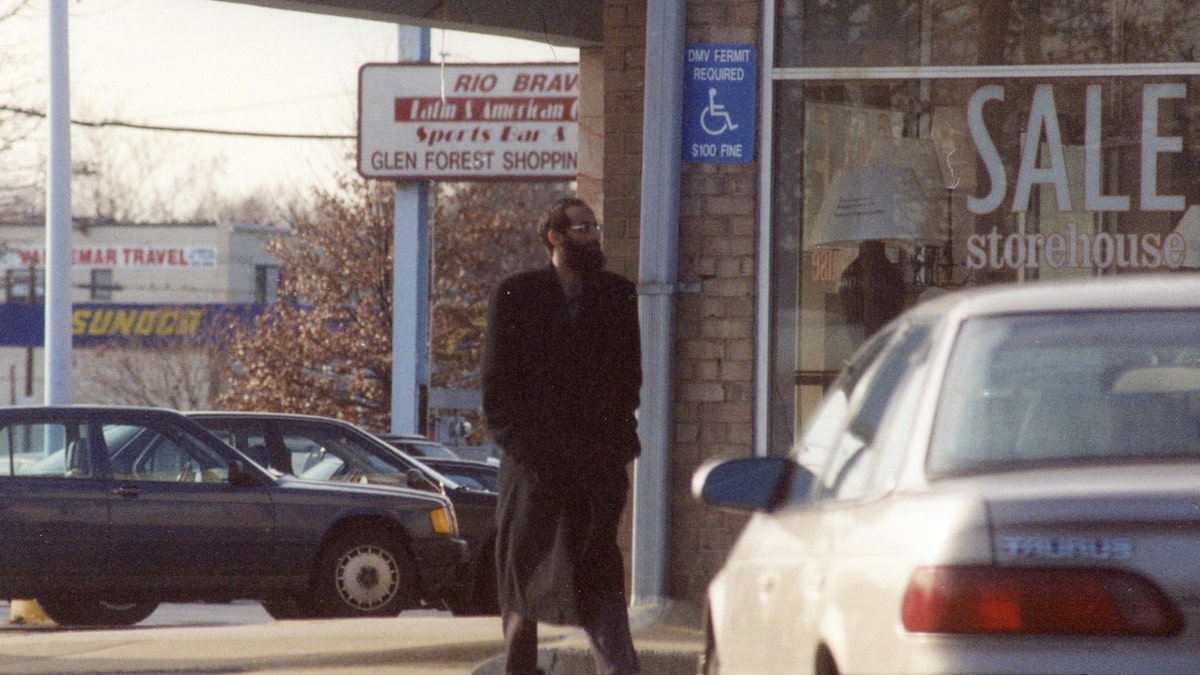
EXCLUSIVE: New files obtained through a federal lawsuit show, for the first time, FBI surveillance images of American-born radical cleric Anwar al-Awlaki on the same day he spoke at a Pentagon lunch to promote post-9/11 outreach to the Muslim community.
The FBI documents confirm the imam was under bureau surveillance as part of the “IT UBL/Al-Qaeda” investigation, but the information was not shared with the Defense Department’s Office of General Counsel, which sponsored the 2002 Pentagon lunch.
The high-level FBI surveillance – including specialized teams, as well as video and photos – also calls into question the bureau’s explanation regarding a decision eight months later, in October 2002, by FBI agent Wade Ammerman. While Awlaki was held by Customs officers at JFK airport because of an outstanding warrant for the cleric’s arrest from the Joint Terrorism Task Force in San Diego, Ammerman told Customs to release him. The FBI has maintained Ammerman’s actions were routine.
Awlaki, who became the first American put on the CIA’s capture-or kill list, died in a drone strike in Yemen in 2011. The cleric’s travels in and out of America while he steadily moved up the Al Qaeda food chain have been the subject of extensive reporting and investigations by Fox News, in “The American Terrorist” and “Secrets of 9/11.”
The latest photos, reviewed by Fox News, are frame grabs from video shot by the FBI. They were obtained by ongoing FOIA litigation filed by Judicial Watch, a conservative nonprofit which promotes government transparency.
The FBI first released blurry ‘Xerox’ copies in 2013 of the photos with poor resolution. Chris Farrell, director of Judicial Watch investigations, said they sued the bureau for more because Awlaki had confirmed contact with the 9/11 hijackers in San Diego and Virginia.
“The FBI continues to obstruct and delay the production of records concerning their investigation of the dead terrorist spiritual leader of the 9/11 hijackers -- Anwar Awlaki,” Farrell said.
Particularly striking is the newly released FBI surveillance photos of the six-foot-one-inch, 135-pound imam wearing a long brown coat walking around Virginia on Feb. 5 2002, which was the same day he spoke at the Department of Defense luncheon.
As first reported by Fox News, the luncheon was held in the Pentagon where just five months earlier American Airlines Flight #77 crashed after being hijacked, killing 189 people, as part of the 9/11 attacks.
The Awlaki luncheon was attended by more than 70 people, according to a highly redacted email obtained by Fox News. Titled, “Islam and Middle Eastern Politics and Culture,” it was held in a Pentagon executive dining room and featured smoked ham and turkey. At the time, besides being known to at least three of the 19 hijackers, Awlaki had California and Virginia rap sheets with arrests for prostitution and loitering around a school.
Yet the highly redacted FBI documents and surveillance logs also reveal that Awlaki was known to the bureau to be back in Virginia on March 28 traveling around with an “Unknown Middle Eastern Male” of medium build wearing a blue jacket and a white baseball cap.
Farrell said the FBI released screen grabs but refused to release the surveillance videos. “Almost 16 years later [after 9/11 attacks], how are the interests of the American public served by the FBI’s legal gamesmanship and excessive redactions?” he said.
October 2002 was a key month of movement for Awlaki, especially after a federal warrant had been issued for his arrest -- but was mysteriously rescinded when he showed up at JFK airport in New York on Oct. 10. He easily traveled to Virginia and eventually disappeared in Yemen, becoming a top recruiter for Al Qaeda.
In 2015, the United States Court of Appeals for the Fourth Circuit remanded a post-9/11 terrorism case on the grounds that the FBI withheld evidence of its 2002 investigation into Awlaki, as well as into a northern Virginia Islamic scholar, according to federal court documents.
The case focused on allegations that Dr. Ali Al-Timimi -- a cancer researcher and self-described Muslim scholar -- inspired a group of young men from Virginia to travel to Pakistan to join Lashkar-e-Taiba, one of the largest terror organizations in South Asia.
Timimi was convicted on 10 felonies and received a life sentence in 2005.
The Fourth Circuit decision was based on new evidence uncovered from the National Archives by defense attorney Jonathan Turley and his team, as well as the findings of an ongoing Fox News investigation that showed that details of Awlaki's re-entry to the U.S. in 2002 and the role played by the FBI agent who facilitated his re-entry were withheld from the defense, and withheld during his appeal.
What makes the October 2002 incident all the more strange is that the FBI allowed Awlaki to go free, apparently without surveillance, while scores of young Muslim men with no known connection to the 9/11 hijackers were held on material witness warrants.
Earlier that same year, the bureau had used the "SSG" or special surveillance group, reserved for the highest priority cases, to track the cleric and his frequent use of prostitutes, some of them underage.
The FBI has never publicly explained why its handling of Awlaki changed so dramatically.
Awlaki would later be tied to terror plots including the Fort Hood massacre and the thwarted attacks of the Fort Dix Six and so-called underwear bomber. He remains one of the first terrorists to demonstrate command of the Internet to recruit and inspire radical followers.












































